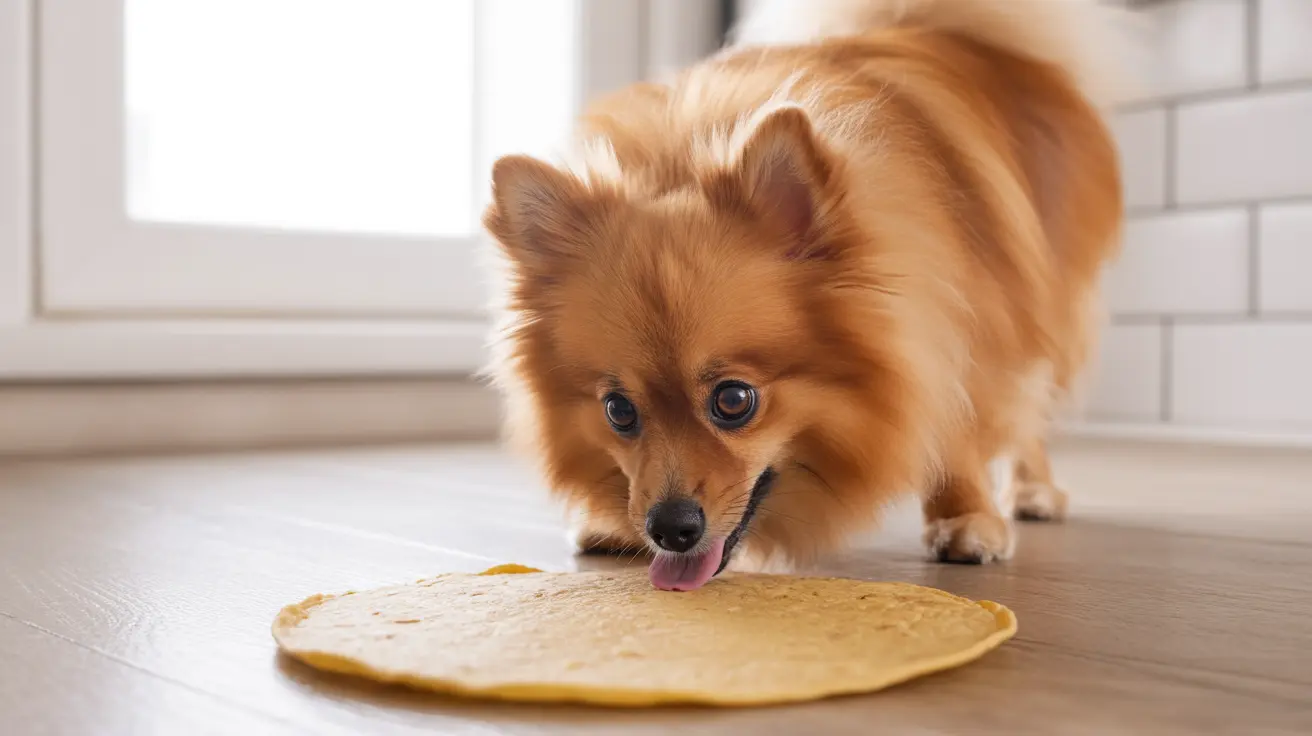Introduction
As pet owners increasingly share their food with their furry friends, many wonder about the safety of corn tortillas for dogs. While not toxic, these Mexican staples require careful consideration before offering them to your canine companion. This comprehensive guide explores the safety, risks, and recommendations for feeding corn tortillas to dogs, helping you make informed decisions about your pet's diet.
Are Corn Tortillas Safe for Dogs?
Corn tortillas are technically safe for dogs in small amounts, but this doesn't mean they should become a regular part of your pet's diet. Made primarily from corn flour (masa harina), water, and salt, plain corn tortillas don't contain immediately toxic ingredients. However, their nutritional profile and potential risks make them a less-than-ideal treat choice.
The key is moderation and preparation style. Plain, unseasoned corn tortillas are safer than those with added ingredients or seasonings. However, even plain versions should only be offered occasionally and in small quantities.
Nutritional Value and Health Implications
Benefits of Corn Tortillas
Corn tortillas do offer some minimal nutritional benefits:
- Small amounts of dietary fiber
- Some essential minerals like magnesium and potassium
- Trace amounts of protein
- Gluten-free composition (beneficial for gluten-sensitive dogs)
Potential Risks and Concerns
The risks of feeding corn tortillas to dogs often outweigh the benefits:
- High carbohydrate content that can contribute to weight gain
- Significant sodium levels, especially in store-bought varieties
- Potential for digestive upset or bloating
- Risk of corn allergies or sensitivities
- Limited nutritional value compared to proper dog treats
Feeding Guidelines and Best Practices
If you choose to offer corn tortillas to your dog, follow these important guidelines:
- Start with tiny portions to test for allergies or sensitivities
- Only offer plain, unseasoned tortillas
- Limit treats, including tortillas, to 10% of daily caloric intake
- Avoid tortillas with additives, preservatives, or seasonings
- Never feed tortillas with fillings or toppings
Healthier Alternatives to Corn Tortillas
Instead of corn tortillas, consider these nutritious alternatives:
- Fresh vegetables like carrots or green beans
- Small pieces of lean, unseasoned cooked meat
- Commercial dog treats formulated for optimal nutrition
- Fresh fruits like apple slices (without seeds)
- Plain, cooked sweet potato pieces
Frequently Asked Questions
Can dogs safely eat plain corn tortillas, and how often can they have them?
Dogs can safely eat plain corn tortillas in small amounts, but they should only be given occasionally as treats. Limit portions to small pieces and don't feed them more than once or twice a week.
What are the health risks of feeding corn tortillas regularly to dogs?
Regular consumption of corn tortillas can lead to weight gain, digestive issues, and sodium overload. They may also contribute to nutritional imbalances if fed frequently in place of proper dog food.
Are corn tortillas better for dogs than flour tortillas, especially for dogs with allergies?
Corn tortillas are generally better than flour tortillas for dogs with gluten sensitivities since they're gluten-free. However, dogs with corn allergies should avoid both types and stick to specialized dog treats.
What signs should I watch for if my dog might be allergic or sensitive to corn tortillas?
Watch for signs like itching, gastrointestinal upset, vomiting, diarrhea, excessive gas, or changes in behavior. If you notice any of these symptoms, discontinue feeding tortillas and consult your veterinarian.
What are healthier treat alternatives to corn tortillas for my dog?
Healthier alternatives include fresh vegetables, lean meats, commercial dog treats, and fruits like apples or berries. These options provide better nutrition and fewer risks than corn tortillas.
Conclusion
While corn tortillas aren't toxic to dogs, they're far from an ideal treat choice. If you decide to share them with your pet, do so sparingly and stick to plain, unseasoned varieties. For optimal health, focus on treats specifically designed for dogs or natural alternatives that offer better nutritional benefits. Always consult with your veterinarian before introducing new foods to your dog's diet, especially if your pet has existing health conditions or dietary restrictions.






